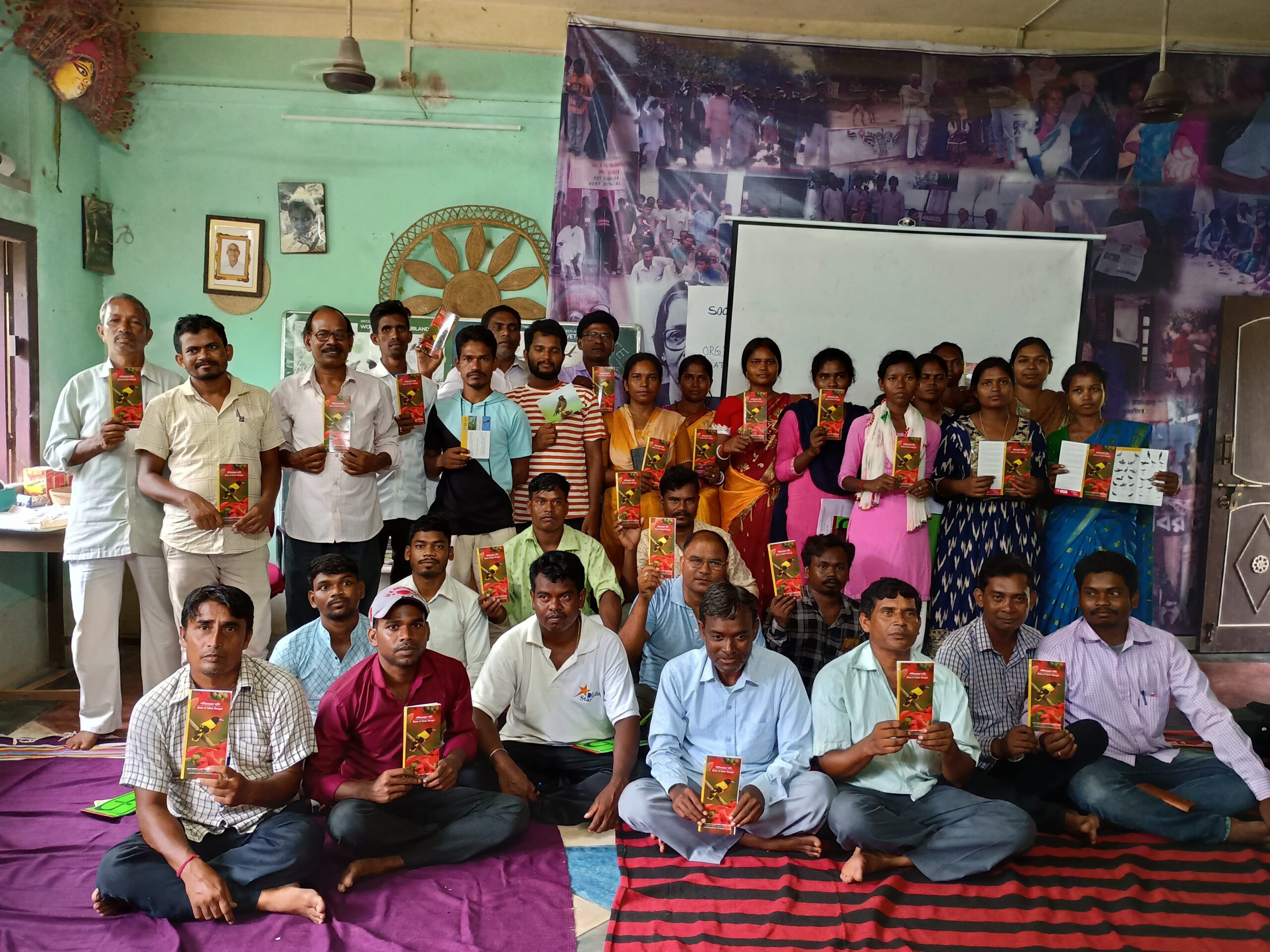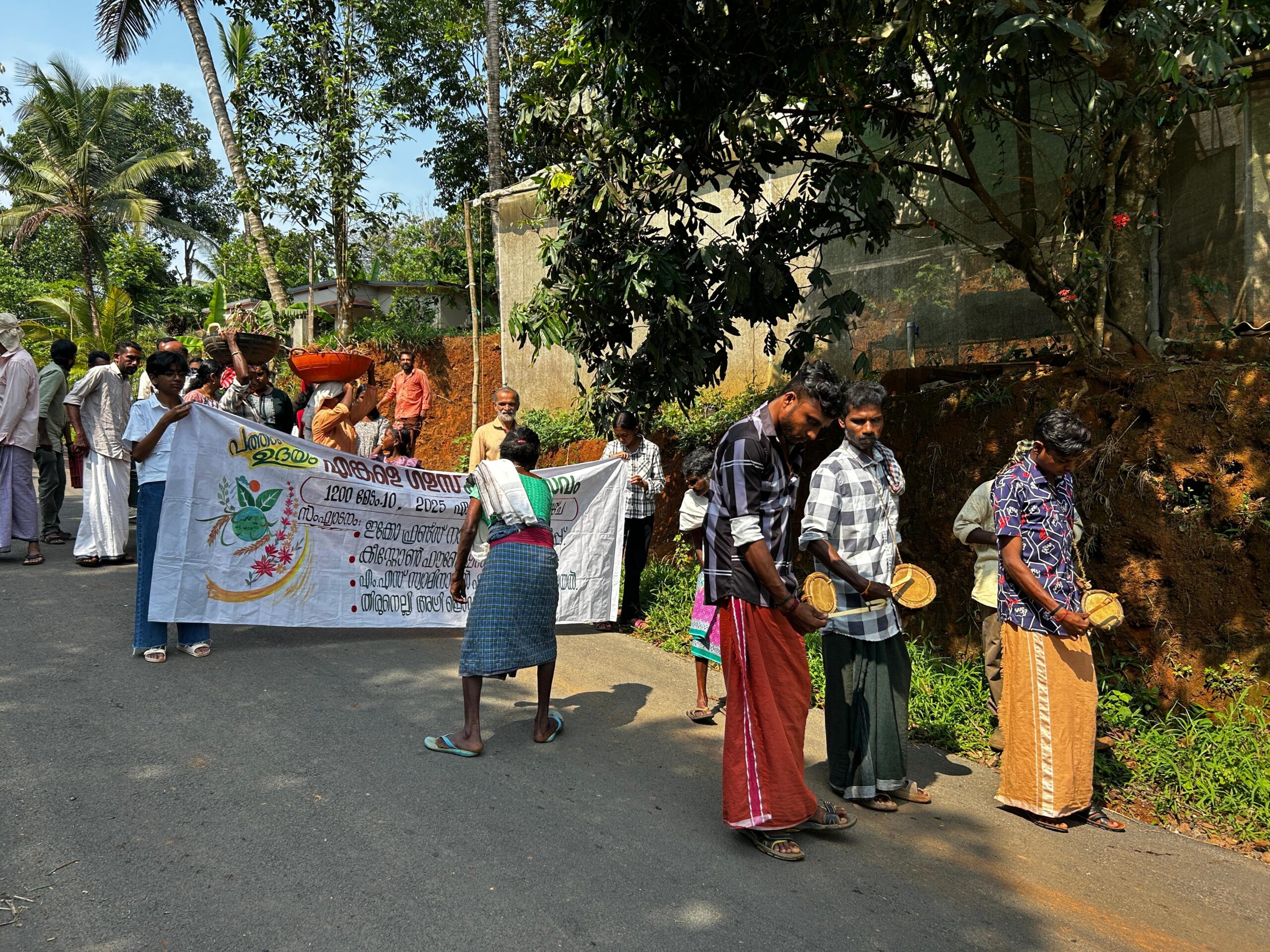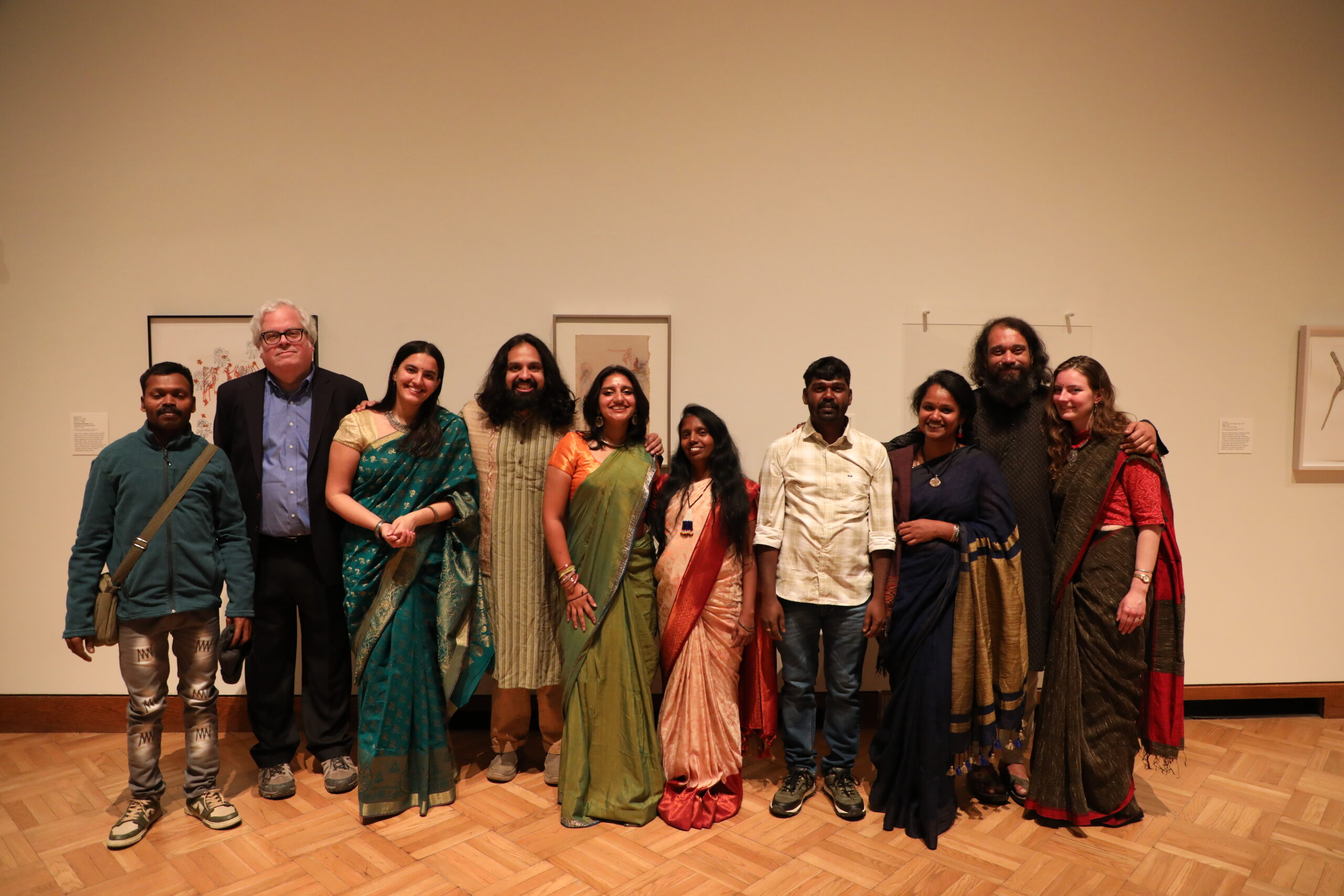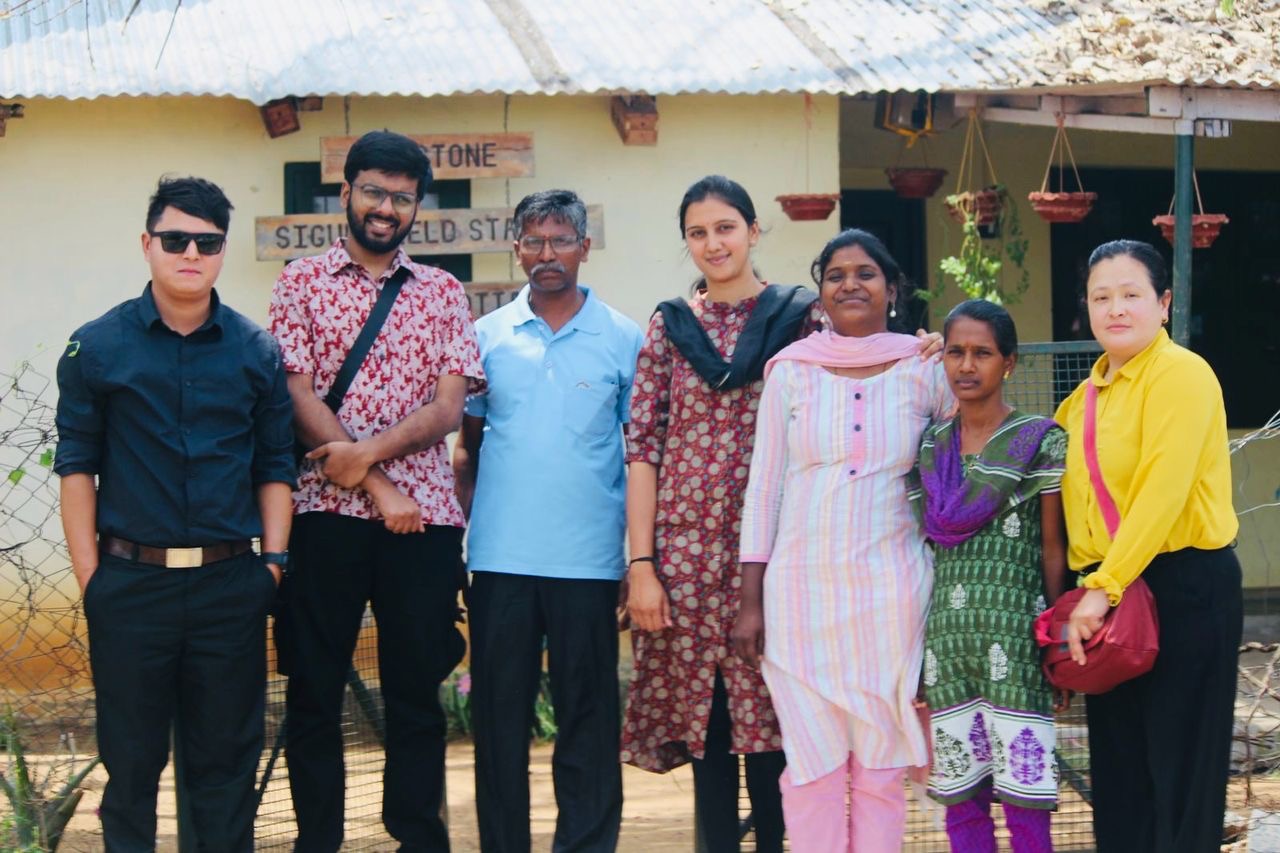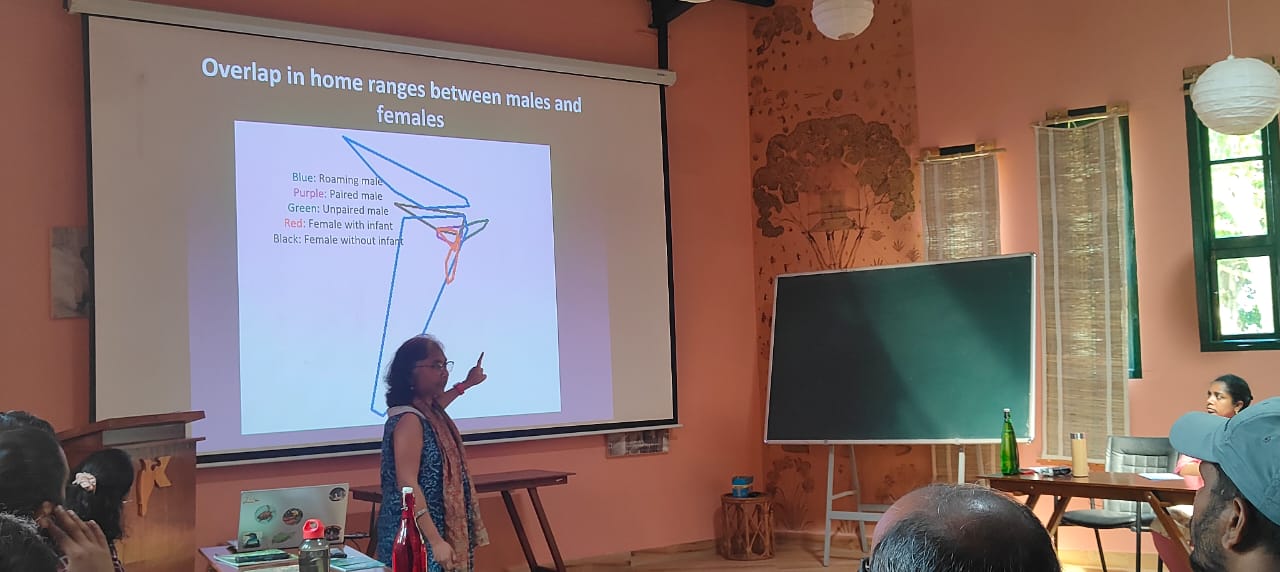By Jyoti Patale, Eastern India Team Consultant, Networks and Alliances
The first orientation and training workshop on Forest Education for Eastern India was held on July 25th, 2024, at the PBKSKS (Paschim Banga Kheria Sabar Kalyan Samity) office in Rajnowagarh, Purulia, West Bengal. 34 members attended the workshop, including teachers from Community Learning Centres (CLCs) of PBKSKS, PBKSKS fellows, and Keystone Foundation fellows.
This initiative marks the beginning of our Forest Education program, which aims to engage school children and youth groups in three districts: Purulia (West Bengal), Saraikela (Jharkhand), and West Singhbhum (Jharkhand). The Forest Education program seeks to bridge the intergenerational gap in traditional knowledge about forests, uncultivated food, and cultural practices related to nature. By implementing awareness sessions and context-based educational modules, we aim to bring this vital knowledge to the forefront. Our barefoot ecologists in the villages will act as resource persons, facilitating the Village Elder Program with children.
The workshop commenced with an introduction session led by Jyoti Patale (consultant, Keystone Foundation). Jyoti presented the concept of Forest Education, focusing on several key topics. She began with an overview of India’s rich biodiversity, highlighting biodiversity hotspots and the ecological importance of various creatures. This was followed by a discussion on the interconnectedness of humans and nature, and the various factors impacting biodiversity. The participants also explored the local impact of climate change, emphasizing the need for context-based forest education in their areas. Strategies for incorporating Nature-based learning in local languages were discussed, highlighting the importance of making education accessible and engaging for all. The session also addressed the challenge of reducing the intergenerational gap in passing on traditional knowledge about forests and nature. Finally, the group engaged in a discussion on rethinking education in the context of climate change.
The afternoon session focused on bird education through group work. Jyoti introduced various educational materials on nature education, including bird flashcards and West Bengal pocket guides created by the Early Bird organization. The participants engaged in an activity called “Identify the Bird,” where they worked in five groups. Each group created hints about a bird they were assigned, and other participants had to guess the bird. This activity encouraged creativity, with teachers creating thoughtful questions and poetry about the birds. The activity fostered active participation and was well-received by all participants.
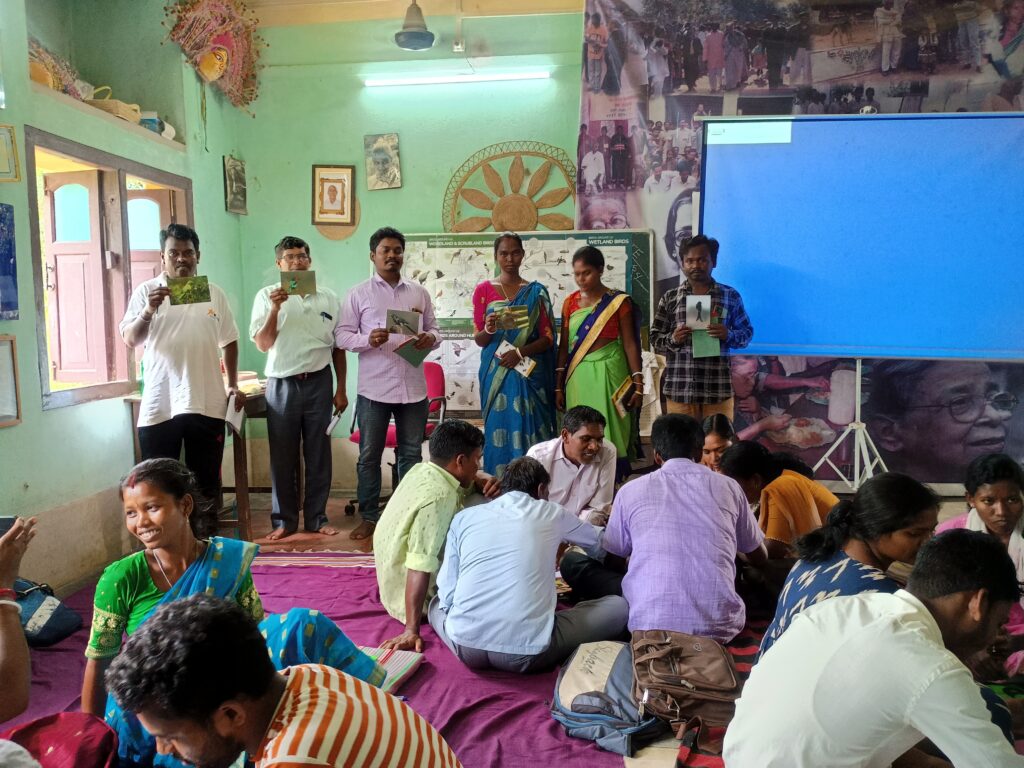
One of the Community Learning Centre teachers, Srijan Mandi, expressed that the activity-based learning tools introduced are highly beneficial for primary school children. The hands-on approach was appreciated for making learning more engaging and enjoyable.
Additional resources, including green library materials such as bird posters, nature trail games, and drawing activities were introduced in the lesson. Participants discussed plans to establish libraries in community learning centres for primary school children, utilizing these resources for storytelling and other educational activities. The Merlin bird identification app was also introduced and demonstrated, showcasing its potential use during nature trails.
The workshop concluded with a discussion on teamwork and the effective use of resources at the grassroots level.

